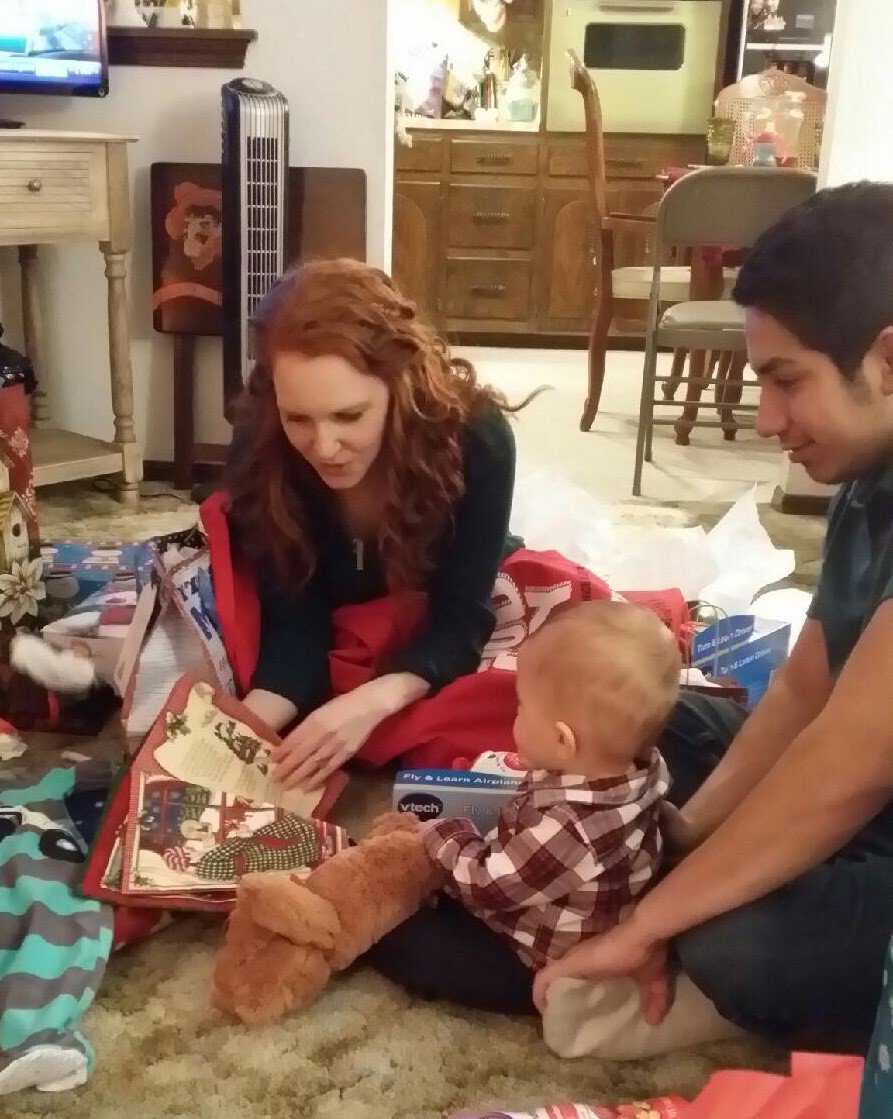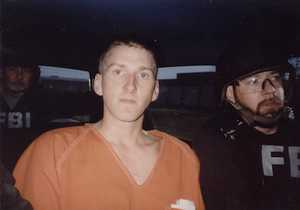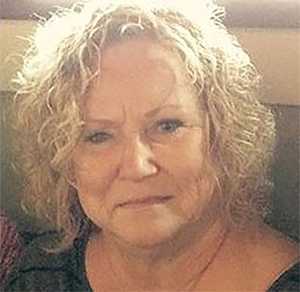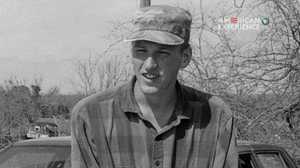Life After Oklahoma City
Rebecca Denny, now Rebecca Muniz, was one of six children at the America’s Kids day-care center who survived the 1995 Oklahoma City bombing. Her brother Brandon was also there, and suffered serious injuries. Two years old at the time, Rebecca is now 24, living near Oklahoma City with her husband and young son. American Experience spoke to her about how the bombing has affected her life.

You were two years old at the time of the Oklahoma City bombing. Do you remember anything?
I don’t remember anything before the age of four or five. A lot of kids have memories from when they were two or three, but I believe my brain has blocked everything out. My earliest memory is when I went to Pre-K — everything before that is a blur.
Do you think of yourself as a survivor? Do you feel like it’s a part of your identity?
I don’t feel like a survivor. I feel like this just happened to me and now I have to play the cards I’ve been dealt. I’ve been introduced as a survivor many times and it always sounded weird to me. I would never introduce myself as that. I feel like something will become your identity if you let it. When I was growing up, I felt like I had to be a “survivor,” but I didn’t even know what that meant yet. I will never forget the guilt that would wash over me when I would see the parents of the children who did not survive; they would just look at me, and I knew that they were seeing their children. I would feel this huge weight on my shoulders because I would think, “What am I doing wrong?” or, “Are they wishing that their child was here and I wasn’t?” No one was ever rude to me or anything, but I felt bad or I felt like I had to be better than what I was. I still carry that with me today, and I guess I always will.
How has the bombing informed your relationship with your parents?
My parents and I have had a rocky road when it comes to the bombing. My dad has always been the type to do interviews and try to get an inspirational message out there with our family, even if we weren’t doing so great. My mom is a people pleaser; she wants to make everyone happy. Brandon is very laid back and he will just go with the flow. As I got older, I didn’t like doing the interviews because I would always feel like I was putting on a front for people. A majority of the time I was not happy, and I was struggling with depression, but I wanted to make my dad happy and do interviews. I stopped doing interviews about the bombing while I was in college. I wanted people to have a relationship with me as a person and not for something that happened to me. For my parents, certainly my dad, I think it was hard for him to separate what happened to us from who we are.
I imagine it might be hard to tell new people in your life about what happened to you. What has that been like?
Telling my husband was pretty simple; he’s a very laid back person so he just said “Okay” and that was it. He has gone to the ceremonies with me since 2012 and has been a good support system. I haven’t quite figured out how to tell my son Alexander yet, but I want him to come to the ceremonies with me starting this year and we can go from there. Telling people from out of state is much harder because it wasn’t a big part of everyday life like here in Oklahoma, so I have to give the whole history of the bombing and McVeigh, and it just becomes more of a history lesson. I’m pretty sure everyone from Oklahoma has been affected from the bombing directly or indirectly.
Do you feel like people treat you differently once they know?
I feel like they may look at me differently, looking for scars or damage. I break the ice by saying “Okay, so this scar is from the bombing and this piece of glass is in my hand from the bombing,” and then we go on and I change the subject. It’s only a big deal if you make it a big deal.
How has your understanding or perspective of what happened changed over the years?
I would say finding who I am outside of the bombing has helped me, as well as becoming a mom and realizing the real value of carrying a life inside your body and then bringing that life into the world and raising someone’s friend, future man, a future boyfriend/husband, and a future father.
My son Alex is the best thing that has ever happened to me. I know that sounds sappy, but it’s very true. He saved me. I can’t imagine losing him because I honestly don’t know how I would survive. I look at everyone who has lost a son or daughter in the bombing or in general in a whole new way, and I have a newfound respect for them. I believe that they are survivors. I feel like if you lose your baby no matter how old, a part of your heart is gone. I know that we will see all of them again, but that is an awful thing to endure. Also, I now have a genuine fear of putting Alex in day care, no matter what kind. It could be that I am paranoid or I am just making sure the past doesn’t repeat itself. I know anything can happen anywhere, but day care is just a sensitive subject.
In previous interviews, you’ve said you’ve forgiven Timothy McVeigh. How? Why?
I chose to forgive him because I don’t want to grow up angry. I don’t want to have that consume who I am. Why should I be bitter about someone else’s choices? I feel like if everyone just hated him and they spat every time his name was mentioned, and we kept talking about him and saying bad things — that’s what he would want, and I don’t want to even give him that much. With all of the shootings, bombings, and bad things people are doing, these people just want attention; they crave it. I don’t think we should let them have it. Let’s repeat the names of the victims and their families because they need the good thoughts and prayers, not the people who chose to take those lives.
A tragic event often seems to assemble the full spectrum of humanity. On the one hand, you have a McVeigh; on the other, you have the first responders. What has your experience taught you about people?
I don’t believe that people are necessarily good or evil. I believe that your choices make you who you are. Therefore, we are defined by our actions. The people that choose to spend their lives saving people — the police officers, the firefighters, the doctors, and the military — these people are the real heroes. People that stand up for love, equality, unity, and respect — they are heroes. If you are coming from a place of love, than we are all fighting for the same thing, in my opinion. I am just one person and I am going to do my best with what I have; that’s all anyone can do.








